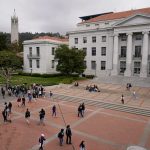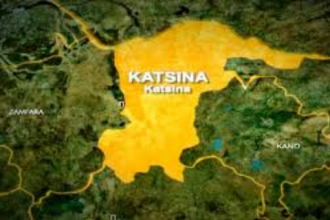NEW YORK (AP) — A member of New York’s Chinese dissident community pleaded guilty Tuesday to spying on his fellow activists on behalf of the Chinese government.
Yuanjun Tang, 68, had long been an outspoken critic of the Chinese Communist Party, joining monthly protests outside the country’s Manhattan consulate and founding a pro-democracy nonprofit in Flushing, Queens, where he has lived since 2002.
But as he publicly advocated against his homeland’s government, Tang was quietly acting on orders from Beijing’s intelligence service to collect information on his fellow Chinese American activists, according to a guilty plea entered Tuesday.
Federal prosecutors, who brought charges against Tang last August, believe he accepted the tasks in order to gain approval to visit family members in China. An emailed inquiry to his attorney was not returned.
“Tang’s betrayal of the ideals of the US to help the Chinese government repress pro-democracy activists goes against the very values he claimed to promote,” FBI Assistant Director in Charge Christopher G. Raia said in a statement.
At the direction of a Chinese intelligence officer, Tang agreed to photograph and record local protests against China, including a 2023 event in Manhattan dedicated to victims of the Tiananmen Square massacre, according to court documents.
Tang also provided the officer with a list of immigration attorneys working to help dissidents gain political asylum.
Tang himself was granted asylum in the U.S. in 2002, shortly after escaping to Taiwan from a Chinese prison where he was held for 12 years for his involvement in student-led protests in Tiananmen Square, according to reports at the time.
He then founded a Flushing-based pro-democracy group, the Chinese Democracy Party Eastern US Headquarters Inc., from he which he voiced frequent public criticism of the Chinese Communist Party.
Tang’s arrest followed several high-profile investigations into China’s attempts to harass and silence dissidents abroad, part of what federal officials have called a campaign of “transnational repression.”
Last summer, a Chinese American scholar, Shujun Wang, who also co-founded a New York-based pro-democracy group, was convicted on charges of gathering information for the Chinese on Hong Kong democracy protesters, supporters of Taiwanese independence, Uyghur and Tibetan activists and others.
The year prior, the Justice Department brought charges against two men it said had helped establish a secret police outpost in Manhattan’s Chinatown neighborhood on behalf of the Chinese government.
In 2018, speaking with the New York Times about a book in which he was featured, Tang offered a hint of disillusionment about the role of a dissident abroad.
“In the first year you speak brave, bold words,” he said. “In the second, nonsense. By the third, you have nothing to say at all.”
Tang is set to be sentenced in January. He faces up to five years in prison if convicted.








